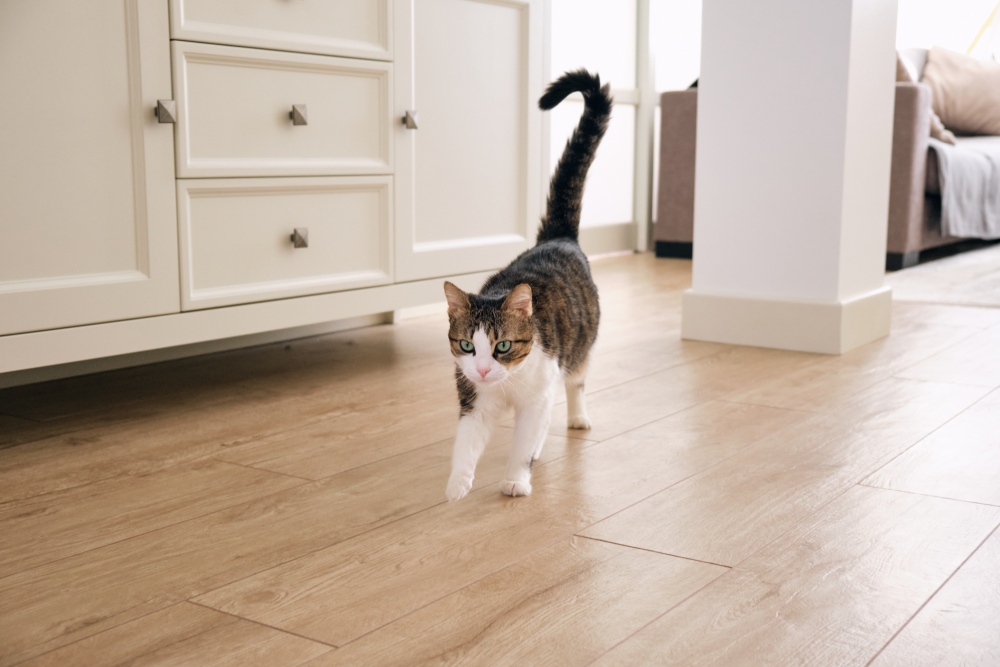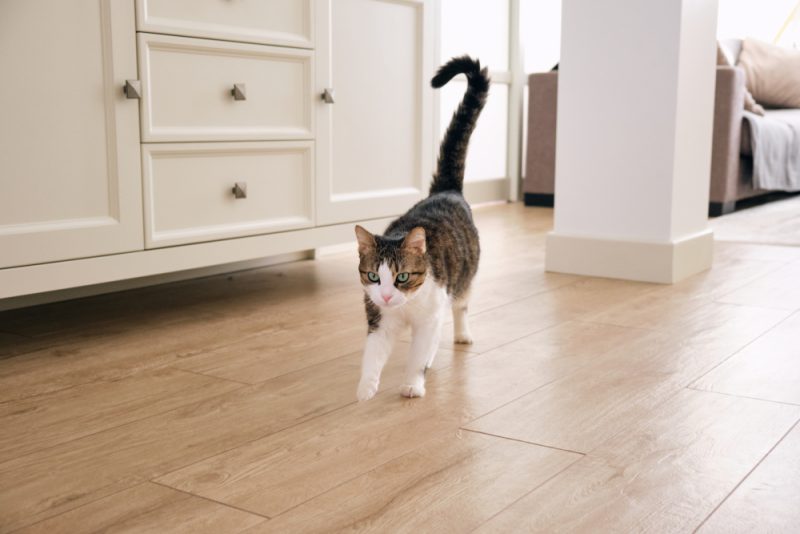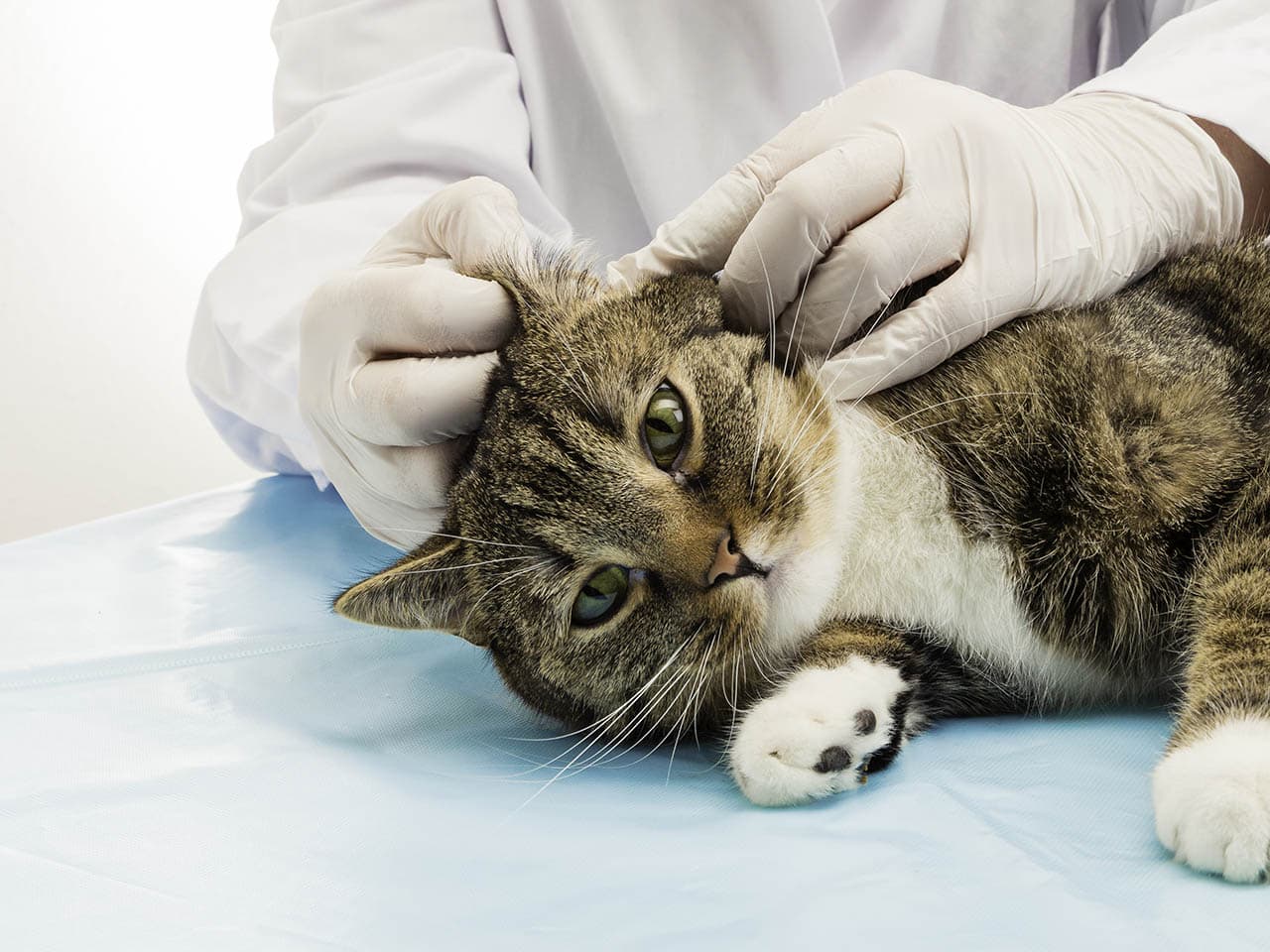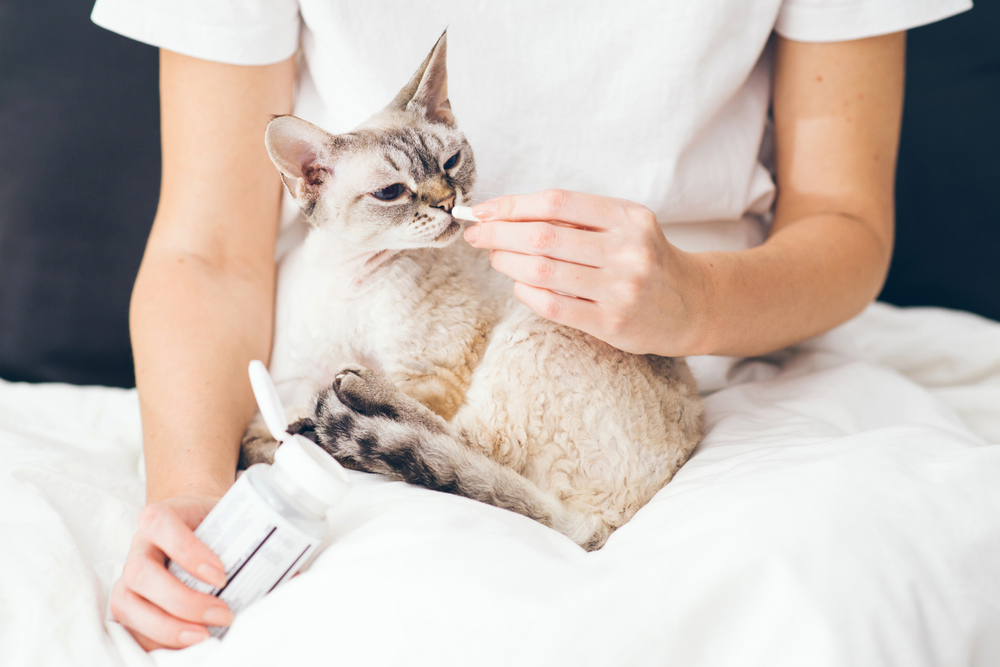Cats generally seem pretty sure-footed—able to balance on top of fences and leap onto tall cupboards, and they (almost) always land on their feet. So, when a cat stumbles, staggers, or topples over, we know there’s something wrong. Cats don’t tend to be clumsy, so what can cause a cat to become unsteady on their feet?
There are a number of health conditions, diseases, and toxins that could result in a sudden loss of balance in a cat, and we can often distinguish between them based on the other signs they might show.
Let’s take a closer look at what could trigger a loss of balance in your cat, also known as ataxia, and what you can do to help.
What Is Ataxia? What Are the Potential Causes?
The technical term for being unsteady or wobbly is “ataxia,” and it occurs when the information between the brain, body, and limbs is disrupted or out of sync. There are three main classifications of ataxia in cats: cerebellar, vestibular, and proprioceptive.
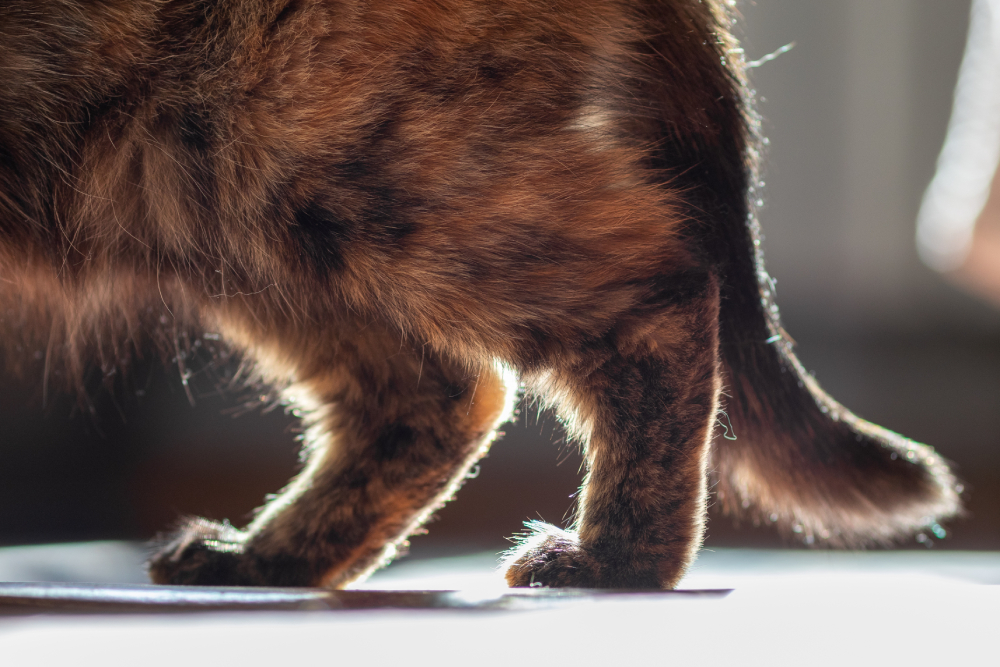
Cerebellar Ataxia
The brain is giving the wrong orders to the body.
The cerebellum is the part of the brain that controls motor function. A problem in this area can result in uncontrolled or uncoordinated movements, or exaggerated steps (hypermetria).
- Congenital defects (problems the cat is born with, such as cerebellar hypoplasia)
- Inflammatory disease (e.g., encephalitis)
- Degenerative disease
- Ischemia (stroke)
- Neoplasia (cancer, tumors)
- Drug reactions and toxins
Vestibular Ataxia
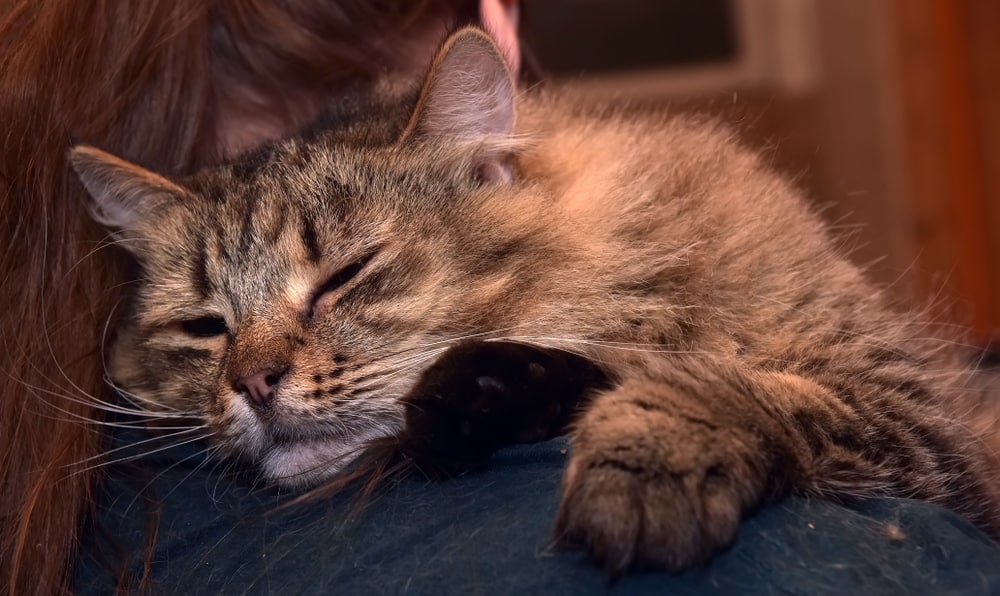
The information from outside the body is getting muddled in the brain.
The vestibular system is a complex arrangement of nerves based in the inner ear that interprets and coordinates balance. Problems in this area can result in head tilt, nausea, nystagmus (flickering of the eyes), circling or falling to one side, and dizziness.
- Infection or inflammation (e.g., otitis Interna)
- Tumors
- Nasopharyngeal/ear polyps
- Drug reactions—some antibiotics can cause vestibular signs
- Idiopathic; i.e., the cause is unknown
Proprioceptive Ataxia
Messages between the body and the brain are being blocked or delayed.
Proprioception is how our brain knows where the body is, allowing us to walk without thinking about it or pull away from a painful stimulus before we even realize we’ve touched it (reflexes). It is coordinated through the sensory nerves that take information to the spinal cord and brain, and motor nerves that carry messages from the brain and spinal cord.
Problems with this system can cause numbness, weakness (paresis), paralysis of the limbs and/or tail, slow or exaggerated reflexes, knuckling, or a wide-based stance.
- Spinal cord damage (protruding discs, trauma)
- Brain tumors
- Ischemia
- Traumatic brain injury
Depending on the location of the damage or lesion, the proprioceptive deficits may affect a single limb, both limbs on one side of the body, just the hind limbs, or all four limbs, and it can also affect the torso.
Signs of Ataxia in Cats
There are some signs of loss of balance that will be quite noticeable, but others may be more subtle. For example, we might be able to feel tingling or numbness in a foot or limb, but how can we know our cat is experiencing this sensation?
Here are nine signs you can look for in your own cat that could indicate there is a problem with their balance, sensation, or motor function, starting with some of the more obvious:
- Stumbling or falling over
- Circling to one side
- Head tilt
- Dragging one or more limbs or knuckling
- This can sometimes be subtle, and you might just notice the toes or claws on the foot scraping the ground more than normal
- Look for damaged claws or damage to the top of the foot
- Hypermetria (“goose-stepping”)
- Nausea, inappetence, salivating, or vomiting
- Tremors when walking
- Reluctance to jump or misjudging a landing
- Overgrooming or chewing at a limb or tail (this can be a sign of tingling or numbness)
- Depression
- Lethargy
- Seizures
- Blindness/bumping into walls/objects
- Discharge from ear, itchy ear
- Pain
- Incontinence
Also take note of any foods, plants, medications, or possible toxins that your cat could have come into contact with, even if it is unlikely. The more puzzle pieces a vet has, the quicker they can reach a diagnosis.
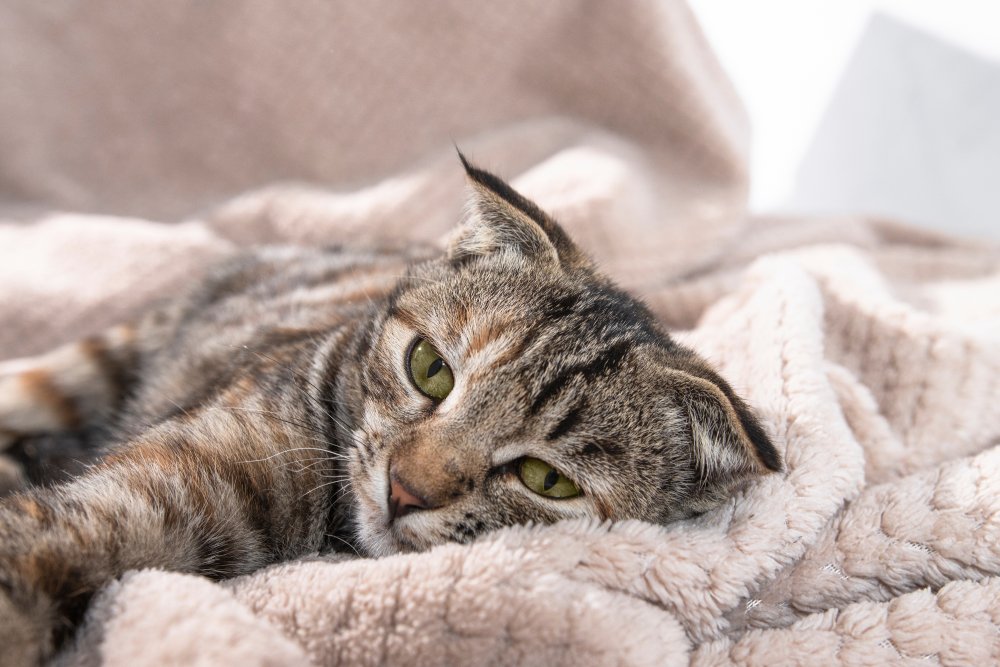
What Sort of Tests Will the Vet Perform?
After a normal physical examination (checking heart, lungs, temperature, etc.), your vet will want to perform a neurological exam. This will help them work out where the problem is coming from and whether it is a case of cerebellar, vestibular, or proprioceptive ataxia.
- Blood tests to check organ function and screen for infectious disease
- Radiographs
- CT scan
- Spinal tap to obtain cerebrospinal fluid for analysis
Can Ataxia Be Treated?
The reason behind your cat’s loss of balance will determine if and how well it can be treated. Your vet may be able to treat an infection, remove tumors/polyps, decompress disc lesions, or reduce swelling with anti-inflammatories or steroids. In cases of idiopathic vestibular disease, the effects are most often temporary, so treatment is focused on supporting the cat until the problem resolves and providing medications to manage any nausea.
If a cure is not possible, as is the case with some brain tumors, permanent spinal damage, or congenital defects, the focus will be on managing the effects and providing palliative care. In some cases, euthanasia may be the best way to prevent suffering.
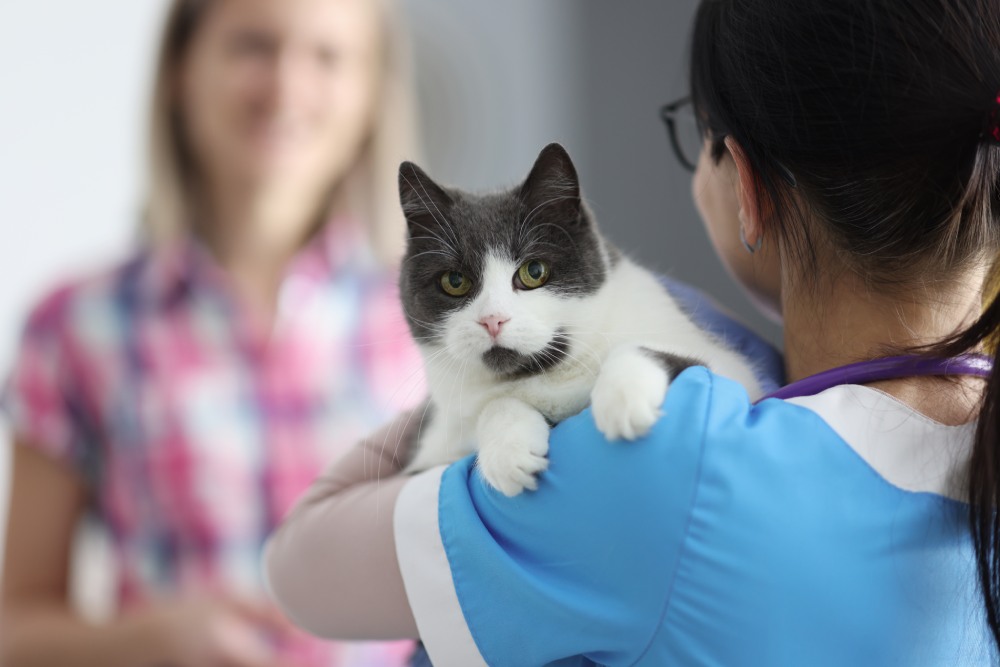
How to Care for a Cat With Ataxia
Your first step should always be to contact your vet so they can advise you based on your cat’s specific situation.
If it is a one-off episode and your cat is otherwise behaving and moving normally, your vet may recommend that you make a note of the time and date of the episode and be on the lookout for anything else. If their loss of balance lasts longer than a few seconds or happens more than once, your cat needs to be examined.
If your cat has been diagnosed with the cause of their ataxia and the problem might be permanent or take time to subside, there are a few things you can do to make your feline feel more comfortable and reduce their risks of injuring themselves.
- Try to confine them to one room or one part of the house.
- If possible, remove or block off any tall furniture that they might try to jump on/off.
- Keep lights on, including a night light. Cats with balance issues rely on vision to help them adjust when their brain and body are getting mixed messages.
- Be extra vigilant and look for any other changes in your cat’s behavior, appetite, or movements.
Frequently Asked Questions
How Long Does Ataxia Last in Cats?
This really depends on the cause of the ataxia. If it is something treatable, it could last for a few days. However, in some cases, it could be something they deal with for their entire life.
Is Ataxia Curable?
Again, this is dependent on the cause. If it is due to something like toxicity, infection, or a tumor, then it is possible to cure it. Some cases even clear up on their own. However, some types of ataxia are unable to be treated.
Final Thoughts
Subtle or severe, a loss of balance in cats can be an indicator of a major problem and should never be ignored. Your cat’s history and any other changes or signs can be vital in getting a diagnosis, so always include as much information as you can, however minor it may seem.
If your cat is having trouble walking, standing, or balancing, get them somewhere safe until you can get them to the vet, such as a small room, cage, or carrier. Take videos if you can, and always call your vet for advice.
Featured Image Credit: Alexander Sobol, Shutterstock

